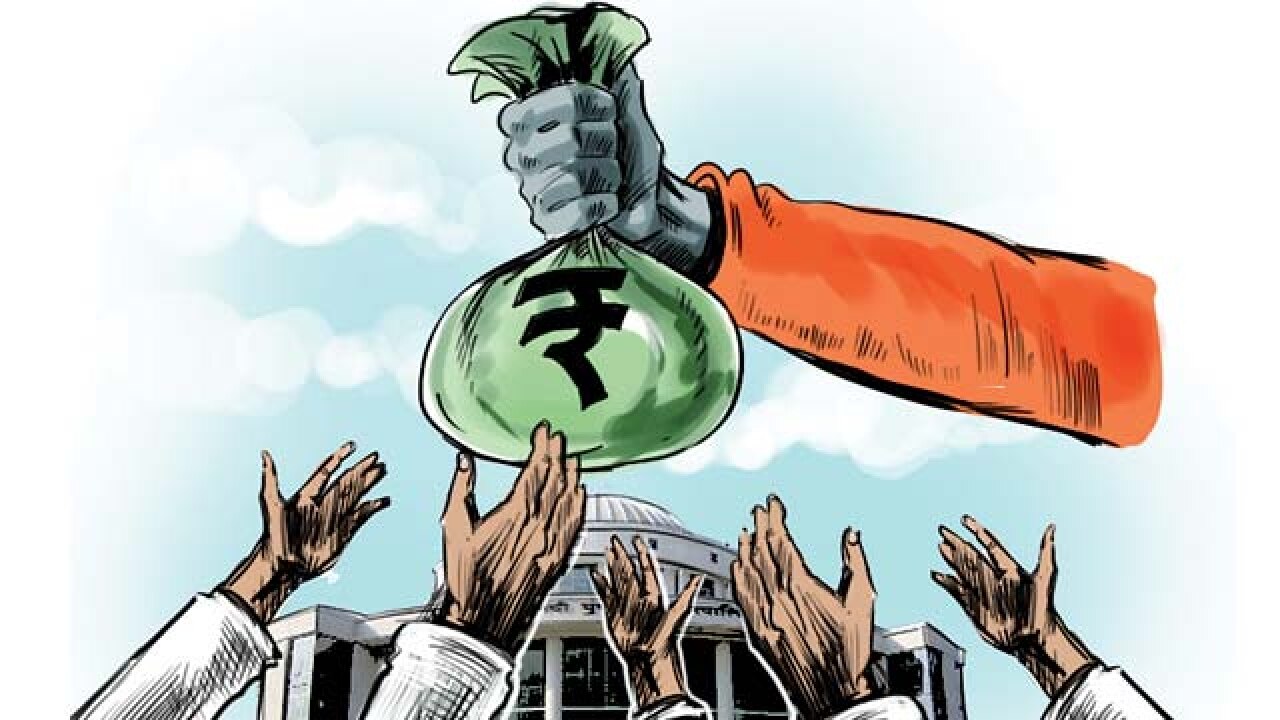
Demonetization has happened. The Government will not roll it back now. It has, in one stroke taken away a significant wealth of its people. It is causing a lot of pain, indeed. But like any other, this pain too will fade in time. And once the cash-rush is over, it will be people’s turn to see what has happened. What could people’s response to this look like?
In the seventeenth century, when the British were establishing their port towns in Surat, Madras, Bombay, and Calcutta forging a nexus of contracts with Mughal rulers and building huge wealth and influence, England was bleeding. The Crown and the Parliament were up in arms against each other, leading to the Civil War (1642-1651) and later the Glorious Revolution of 1688. These became the defining moments of European political history, giving rise to parliamentary democracies around the world.
Behind these conflicts were the arbitrary taxes that the Crown collected from people to fund wars with the French. The Crown family, the Stuarts, imposed arbitrary increases in customs charges, coerced ‘forced loans’, sold monopolies, seized property and abused the powers of purveyance. The taxation was so exploitative that the Parliament (which had the wealth) could not continue to remain subservient. It revolted and won.
When the Crown’s powers were severely curtailed and accounted for, it removed the uncertainty associated with funds going to the State. This encouraged people to give more money in return for more security and rights. The powerless Crown had to promise that property will not be seized, loans will be returned, demand for taxes will be approved by Parliament; and in return, Parliament felt more confident lending the conditional capital. North and Weingast use the term ‘credible commitments’ to explain government’s intent in their seminal 1989 article in The Journal of Economic History.
The developed world has implemented this tax bargain effectively. In the eighteenth century America, the colonies constantly complained of high taxes from England. And yet, after the independence, their tax rates went up without much trouble. People pay high taxes in return for good quality of public works, security and services. In Scandinavian countries, tax rates reach upto 55 per cent with practically no complaints. The tax bargain is struck: I will give money to the state if it credibly commits to use it for my welfare and vice versa.
This type of tax bargain never happened in India. The British extracted rents and taxes without any commitment throughout their colonial rule, and little changed for us in 1947. The government continued to tax people with a commitment that it never fulfilled. This, arguably, provided the people a moral legitimacy for evading taxes—why should I pay tax to the state if I am purchasing practically everything myself anyway? And since elites could afford many services comfortably (public health, affordable housing or education), they never forced the governments to enter into this bargain. Generally stated, what they paid for these services, they saved in taxes. For non-elites, patronage politics became the norm. When you need to admit someone in the government hospital, you have the local MLA make a phone call. Full of gratitude, you vote for her/him in next elections. Government doesn’t provide services, only patronage. Tax bargain doesn’t appear in the picture.
The demonetization has cultivated conditions fertile for a tax bargain to emerge in India. The Government has extracted huge surplus from everyone (however earned) to its coffers, striking the first step of the transaction. Now, it’s people’s turn to place huge demands on the Government to fulfilling the other side of the bargain to complete the transaction. In a democracy with a well-functioning press and civil society, this must attract a call for accountability in ways unseen before. They can’t be paying to the Government while also paying for promised services.
There has never been seizure, the feeling of getting caught off-guard by the government. The real impact of demonetization then, is the chilling effect—a threat to people that your (unaccounted) money is never safe from the government. This discourages people to evade tax; and consequently, it should encourage them to demand for accounting of the paid tax. The Government must be made to deliver. This should be our response.
We don’t know the shape and voice our response will take, but we hope it is sizeable. Otherwise, the entire pain will go in vain. We must force the state to disclose all tax data and let civil society, public intellectuals and people at large scrutinize the Government conducting social audits. When people give a huge chunk of their earnings to the State, they exercise their right to clean air and water, free and quality education and public health services, better transport and dignity of life.
We have a lot of work to do. But the good thing is, once the tax bargain is struck, it will become self-sustainable. History (and Game Theory) suggests that once set in motion, no party would normally want to renege on this contract.
The cannons used in the English Civil War were unusually heavy, which required sixteen horses to move it. They were too large that they were not even accurate. Turns out they were used to strike fear into the other side more than for its effectiveness. Just like demonetization.
The authors teach Economics at OP Jindal Global University, Sonipat (India) and SLU, Uppsala (Sweden) respectively.